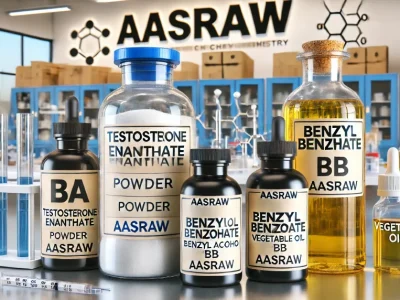Vegetables are the primary sources of vitamins and minerals that help your body in many ways. And also prevent you from many diseases, including; obesity, cancer, diabetes, metabolic disorders, cardiovascular diseases, and many more. Thus, vegetables must be part of your food plate that makes you healthy and wealthy.
What is the importance of vitamin b12?
Vitamin b12 is indispensable for your body to contribute to many functions and produced by bacteria. It, along with folate, make various functions feasible. Vitamin b12 is involved in forming neuron cells, red blood cells, DNA, and degradation of homocysteine. Its deficiency causes many serious health problems.
The recommended dietary allowance suggested 2.4 mcg/day for adults of vitamin b12. The people who are at risk of its deficiency are older people, vegetarians, pregnant women, and lactating women.
Which vegetables are a good source of vitamin b12?
Vegetables are not a best source of vitamin b12; it does not mean you exclude the vegetables from your dining table. Vegetables are an excellent source of other nutrients and minerals. However, some plant-derived foods contain a decent amount of vitamin b12 that is a blessing for vegetarians.
In the United States, the government has already instructed the food manufacturer to add vitamin B12 in common dietary foods like all other vitamins. Some plant-derived foods provide vitamin b12, including;
- Spanish leaves: Studies claim that adding organic fertilizers in the soil increases vitamin b12 in Spanish leaves and provides nearly 14 mcg/100g fresh Spanish leaves.
- Fermented soybean-derived foods: A tempe is fermented soybean-based food containing 7-8.0 mcg/100g of vitamin b12. The addition of vitamin b12 synthesized bacteria during the production of tempe.
- Korean vegetable (Kimchi) provides more than 1 mcg/100g.
- Tea leaves provide approximately 1-1.2 mcg/100g dry leaves.
- Edible Mushrooms: various species of edible mushrooms provide 09-5.61 mcg/100g weight, especially dried shiitake.
- Edible Algae: You will be surprised that algae are an excellent source of vitamin b12. Its two species, dried purple laver(nori) and green laver contain almost 3 mcg/100gdry weight and 63.6 mcg/100g dry weight, respectively.
However, scientists are struggling to produce more plant-derived foods by using different ways. If you’re vegetarians, the above foods are best for you.
No doubt’s animal-derived foods are a good source of vitamin b12, such as;
- Beef liver (70.7 mcg/3-ounces)
- Calms (17 mcg/cooked 3-ounces)
- Tuna (9.3 mcg/3-ounces)
- Salmon (2.6 mcg/3-ounces) and etc.
Why vegetables containing low content of vitamin b12?
You may think, vegetables and animals produce vitamin b12 itself; you are wrong vitamin b12 only synthesized bacteria. It accumulates in animal products, including the liver, because the animal bodies contain bacteria. Animals hold vitamin b12 by drinking bacteria-contaminated water, usually exposed to bacteria-laden manure, and consuming vitamin b12 fortified feed.
However, plants do not usually interact with these bacteria and make vitamin b12 in small amounts.
Which supplements are best for vitamin b12?
Vitamin B12 is available in various supplements to replenish its deficiency. It is available in multivitamin supplements, with other B-group vitamins, and only vitamin 12 supplements. Its dosage varies from 5-25 mcg in multivitamin supplements. Vitamin b12 contents are higher, ranging from 50-500 mcg, in supplements containing b-complex vitamins along with vitamin b12. And supplements containing only vitamin-b12 have higher levels varies from 500-1,000mcg.
You may take these supplements; if you’re facing vitamin b12 deficiency.
Sources of vitamin B12
Table: 1
| Sources | Vitamin B12 content (mcg) |
| Beef liver | 70.7/3-ounces |
| Calms | 17/3-ounces |
| Tuna | 9.3/3-ounces |
| Salmon | 2.6/3-0unces |
| Beef | 2.4/3-ounces |
| Milk | 1.3/cup |
| Spanish leaves | 0.14/100g fresh leaves |
| Fermented soybean | 0.7-8/100g dry weight |
| Korean vegetable | 0.1/100g weight |
| Tea leaves | 0.1-1.2/100g dry leaves |
| Edible Mushrooms | 0.09-5.61/100g weight |
| Edible Algae (dried purple laver (nori) and green laver contain | Approximately 32.3 mcg/100g dry weight and 63.6 mcg/100g dry weight, respectively. |
Conclusion:
Vegetables provide a concentrated amount of nutrients that are essential for your body. Vitamin b12 is the sole vitamin that is present in fewer amounts in vegetables. However, some plant-derived foods provide enough content of vitamin b12. And vitamin b12 supplements are also available to meet the demands of your body.
References:
https://www.ncbi.nlm.nih.gov/pmc/articles/PMC4042564/
https://ods.od.nih.gov/factsheets/VitaminB12-HealthProfessional/







Comments